Rocket.net Vs SiteGround: Data Says Rocket.net is Better!
Rocket.net and SiteGround are two excellent hosting services in the industry. We’ve tested both hosts for more than a year and brought you a series of performance data to compare.
Key Takeaways:
- Rocket.net comfortably beats SiteGround in all performance tests, such as TTFB, Uptime, and load handling.
- Rocket.net doesn’t have any upsells; SiteGround upsells even on their GoGeek plan.
- It takes two clicks to reach Rocket.net customer support. At SiteGround, it takes a minimum of 10 clicks to chat with their support.
At Hostingstep, we buy our own hosting accounts, test them, and recommend hosting services based on real data. Hostingstep is the only review site on the internet to run a 24/7, 365 days a year of testing all popular hosting services. Our business is in survival mode, and we need the support of individuals like you.
If you found our content useful, support us by purchasing your new hosting account using the link provided in this post. This keeps us from renewing our hosting subscriptions, testing new companies, and improving existing test methodologies to produce better content.
Buying a hosting account through our link doesn’t cost you anything extra, but it keeps our small business sustainable and running.
Rocket.net Vs SiteGround
Rocket.net is a Cloudflare-powered WordPress hosting service that offers agencies and customers optimized and reliable WordPress hosting solutions. The service is straightforward to use, with no configurations required by the users.
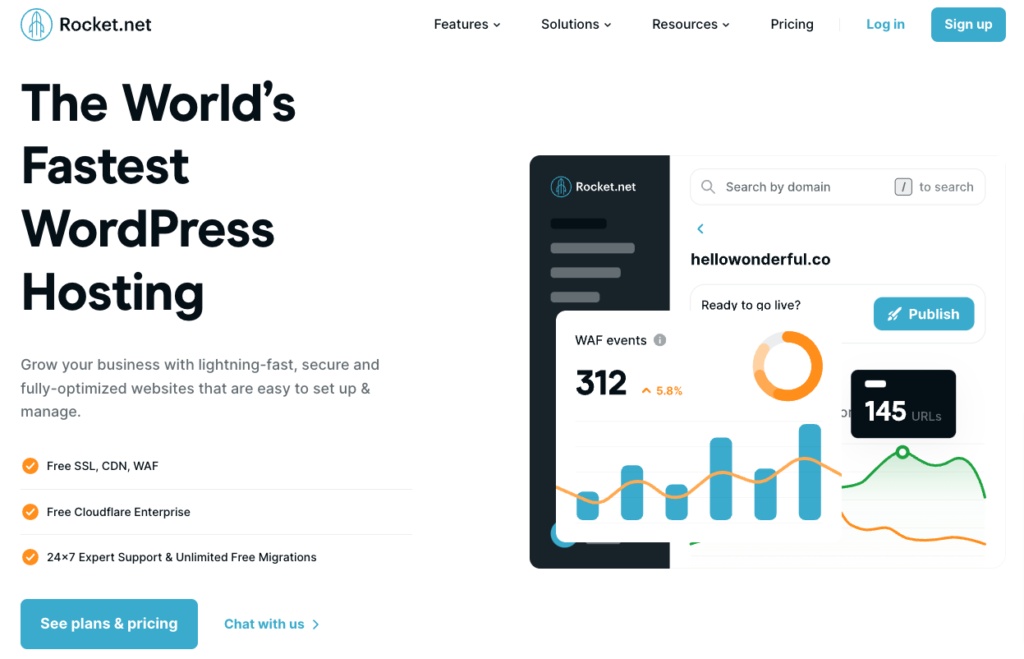
SiteGround is one of the most popular hosting services, and the service has been around since 2004. SiteGround hosting runs on Google Cloud and comes with easy website management.

Rocket Vs. SiteGround: Performance
1. Rocket hosting has better TTFB than SiteGround
In the last 12 months, Rocket.net recorded an average TTFB of 279 ms, while SiteGround recorded an average of 409 ms. There is no comparison here, as Rocket.net wins by a big margin.
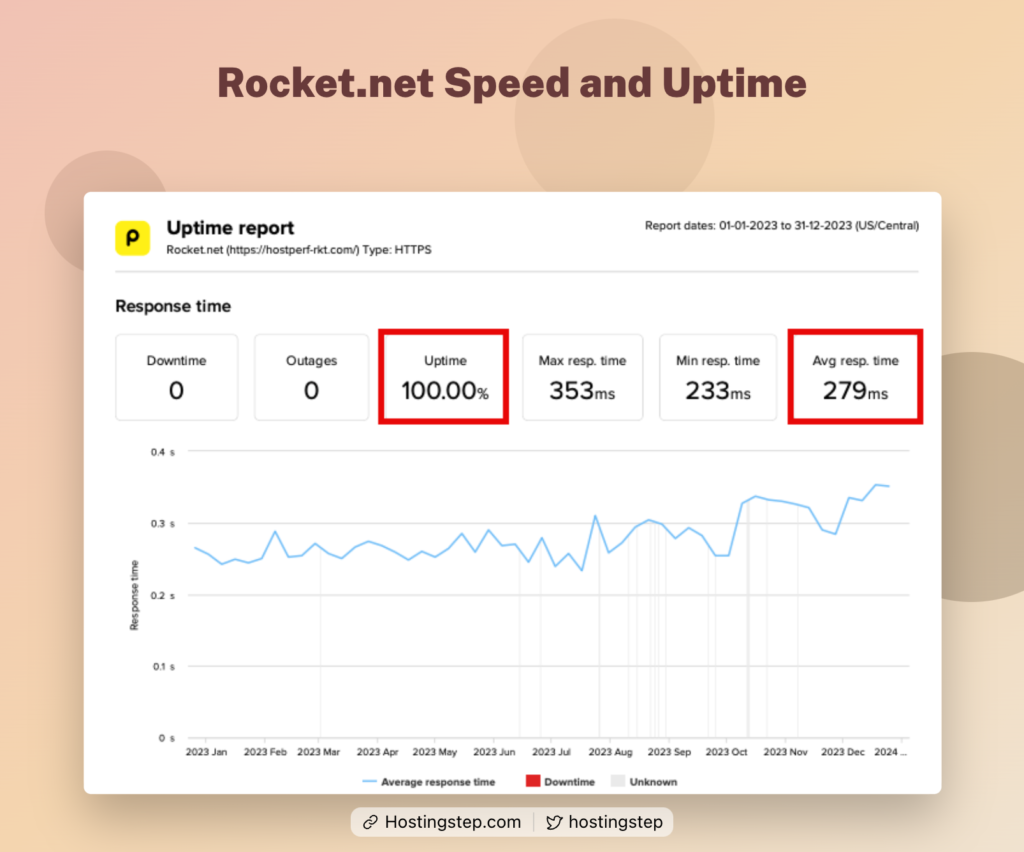
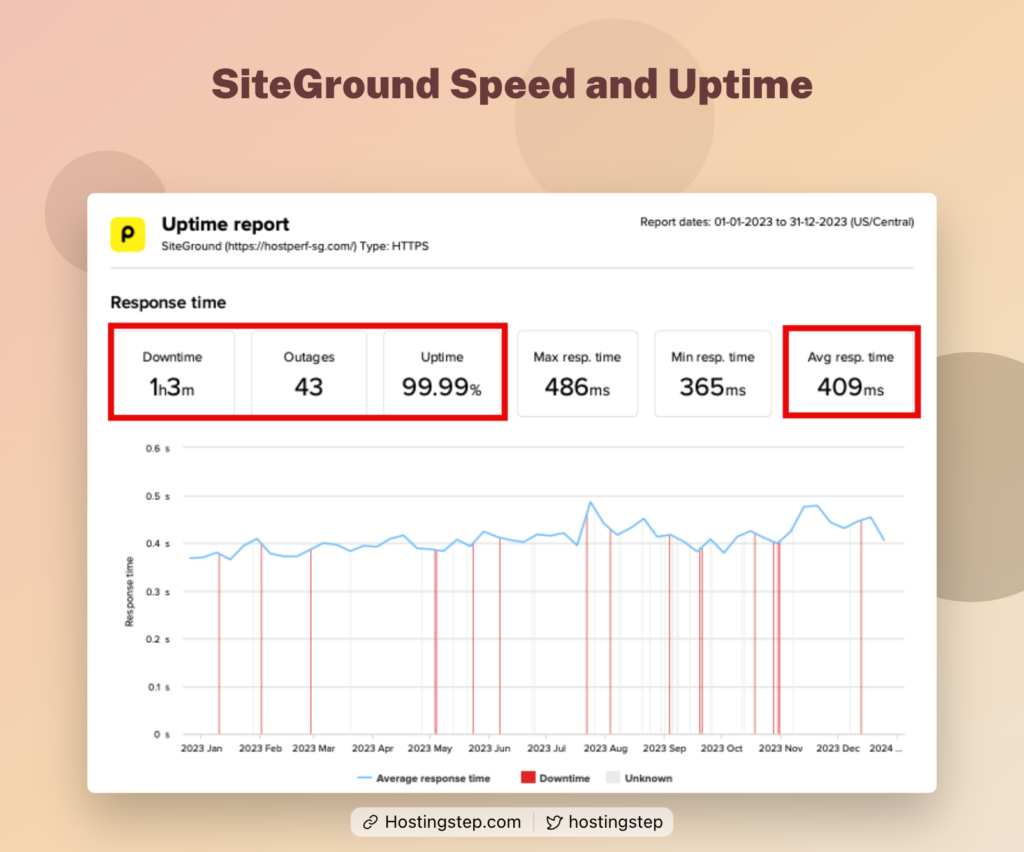
2. Rocket hosting offers 100% uptime
Uptime is another crucial factor in determining a hosting service’s performance. No matter how fast your servers are, their uptime should be equally good.
The Rocket site recorded 100% uptime, while the SiteGround site had 43 outages with 1 hour and 3 minutes of downtime. SiteGround’s average uptime is 99.99%.
Again, Rocket hosting makes the winner here.
3. Rocket hosting is a clear winner in load testing
In this load test, I sent 500 concurrent client loads to both the Rocket and SiteGround test sites. Rocket.net handled the load in just 19 ms, and SiteGround took 179 ms to handle the same load.
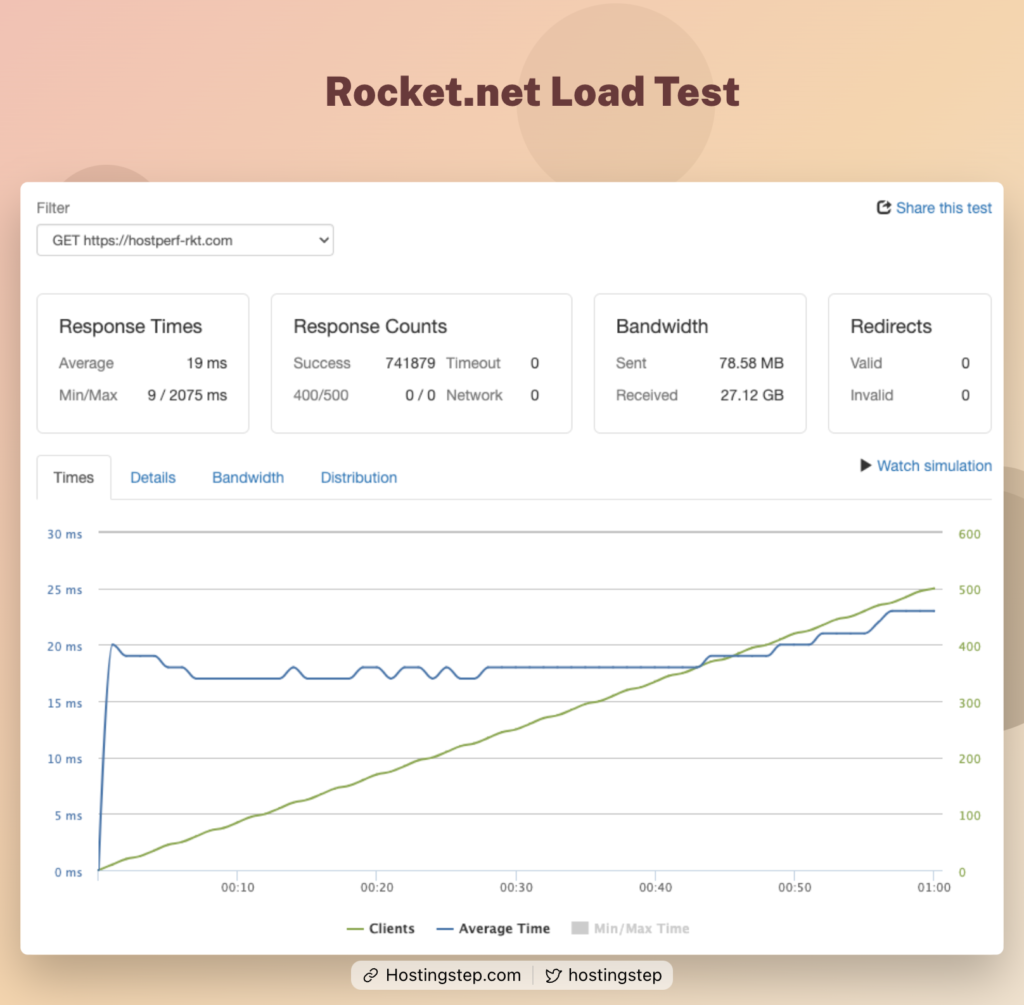
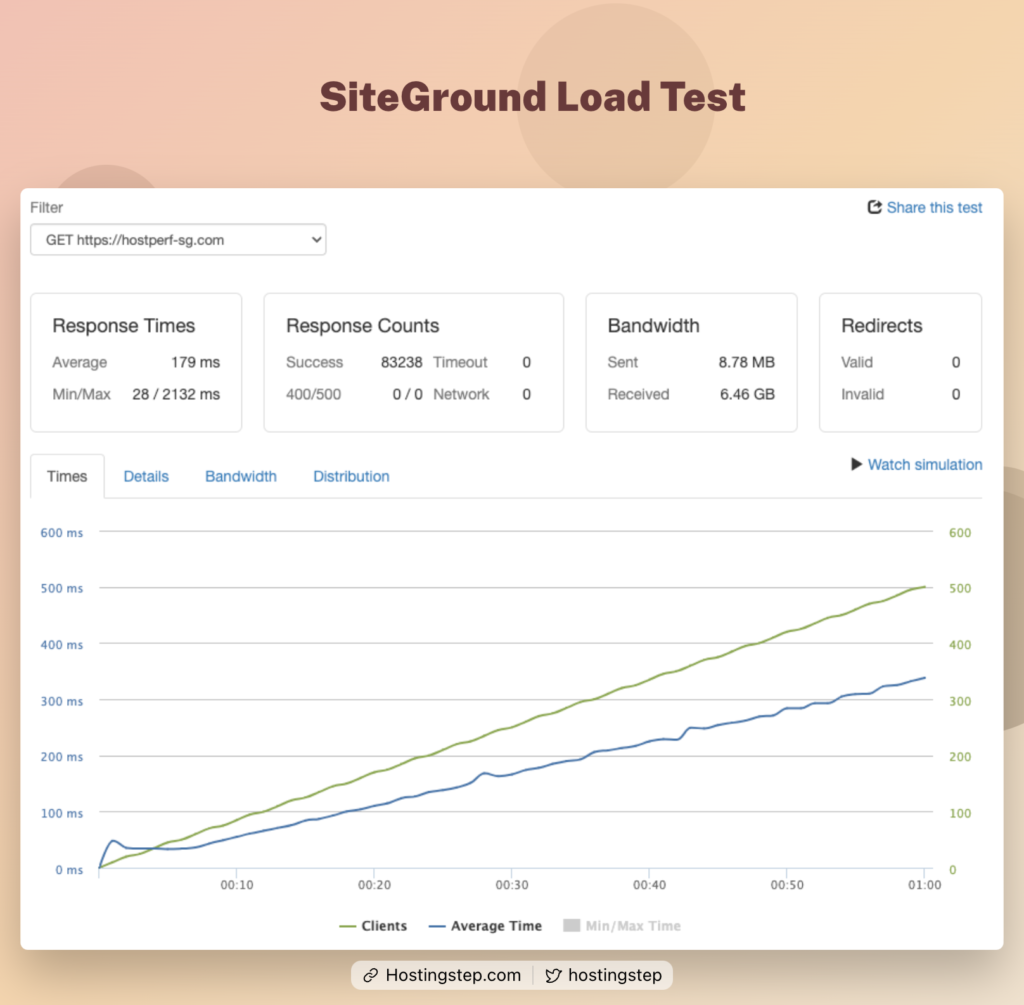
4. Rocket has better Global TTFB
Global TTFB is our latest test method to determine the server’s global speed. If your site gets traffic globally, then this data is for you.
Our data says Rocket scored an average global TTFB of 191 ms, whereas SiteGround scored 870 ms at the same time. This proves Rocket.net is 4x faster than SiteGround.
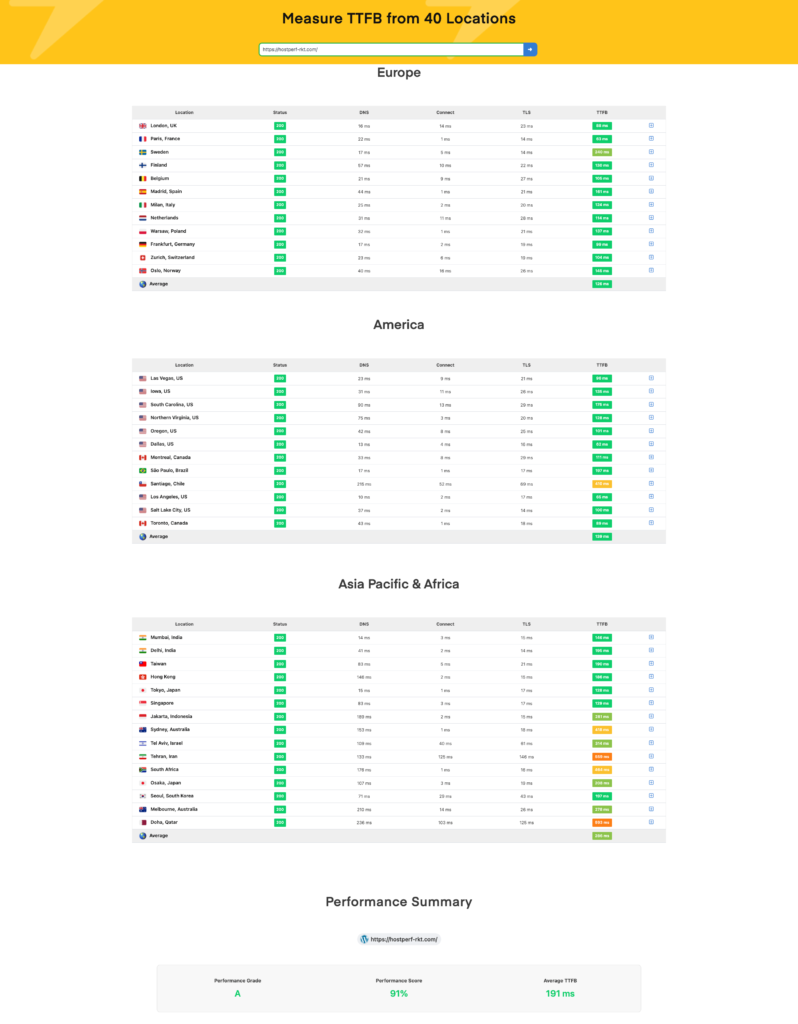
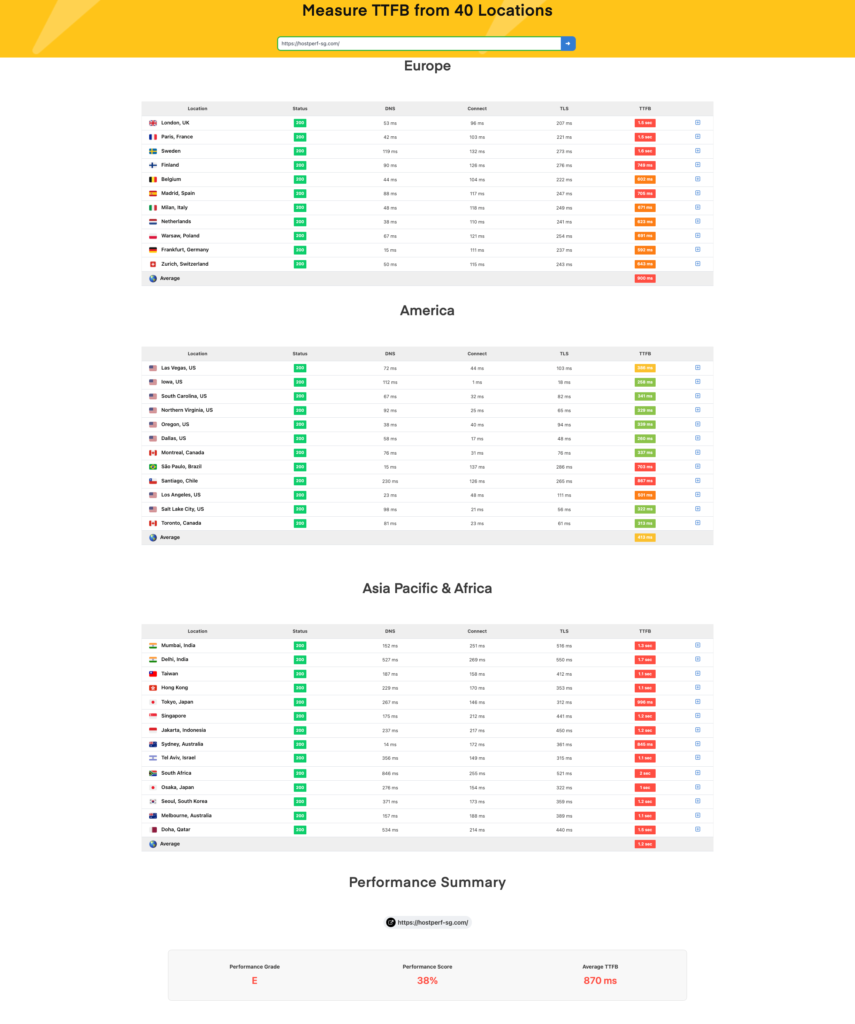
5. Rocket offers a better Core Web Vitals Score
Sites need better Core Web Vitals to deliver a better user experience. This is why search engines like Google have been putting a lot of emphasis on Core Web Vitals metrics like Largest Contentful Paint for quite some time now.
As I tested the Core Web Vitals of my Rocket site and my SiteGround site, my Rocket site had
- a ‘Largest Contentful Paint’ of 550 ms,
- a ‘Total Blocking Time’ of 7 ms, and
- a ‘Cumulative Layout Shift’ of 0.05.
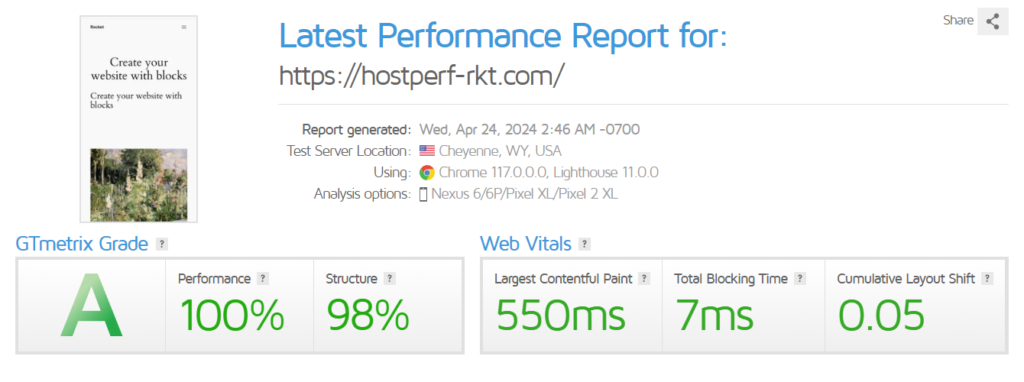
My SiteGround website reflected
- a ‘Largest Content Paint’ of 572 ms,
- a ‘Total Blocking Time’ of 0 ms, and
- a ‘Cumulative Layout Shift’ of 0.07.
If we compare, Rocket seems to have better Core Web Vitals than SiteGround.

Rocket Vs. SiteGround: Features
1. Data Center Locations
Knowing the Data Center locations of a hosting service is crucial since hosting a site from the closest data center to your target audience can drastically improve its performance.
Rocket has as many as 15 data center locations worldwide, which offers customers an excellent choice.
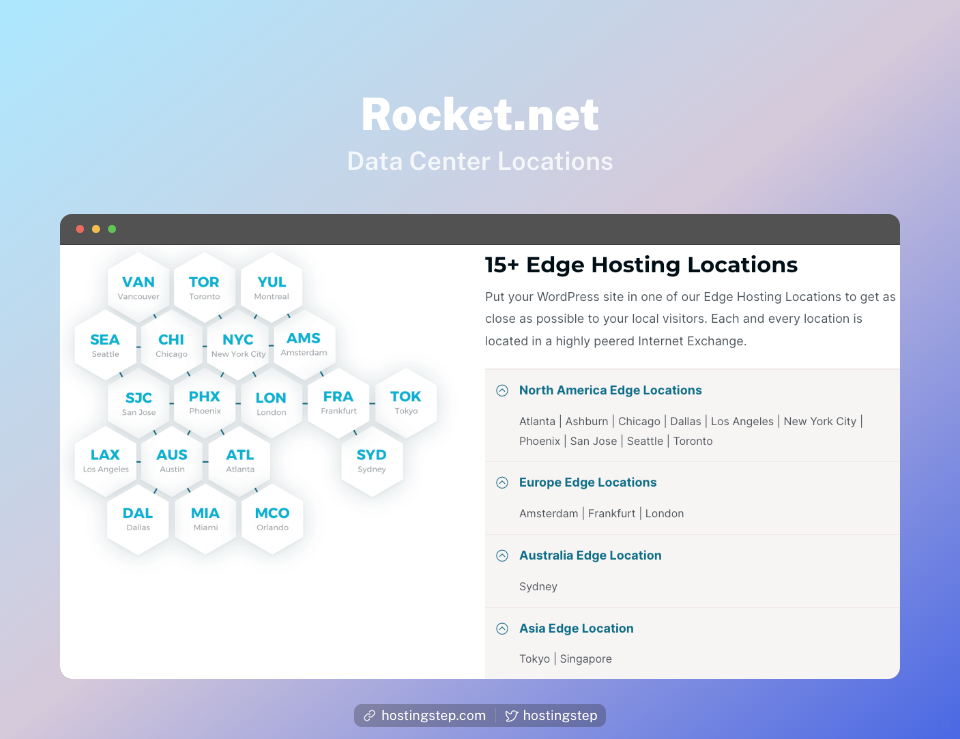
SiteGround has 6 data center locations across Europe, the USA, and Asia, which should not be a problem if you find your desired data center among these 6 locations. However, based on the number of data center locations, Rocket has a leading edge over SiteGround.
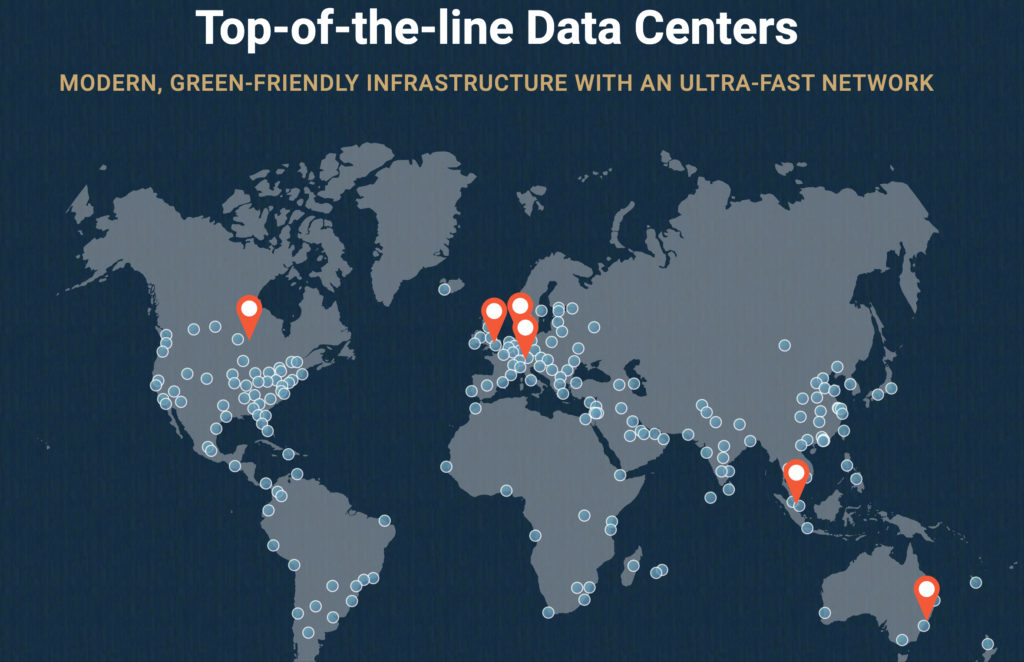
2. Control Panel
Rocket comes with a custom WordPress control panel that offers the convenience of managing everything from a single place. This may include development, launching, staging, and optimization. The control panel allows you to access data center locations, SSO to WP-Admin, robust reporting, and collaboration tools.
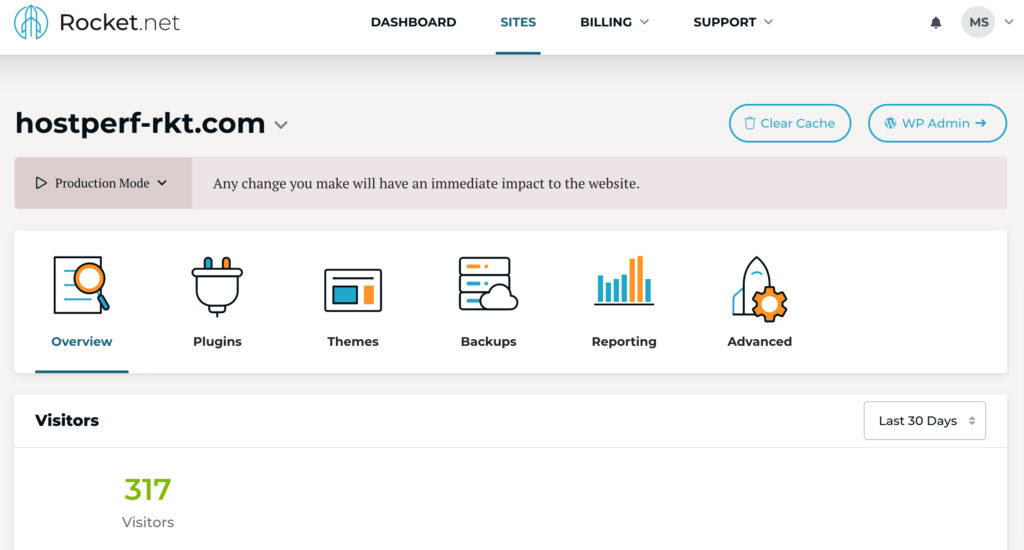
SiteGround also has a custom control panel created by modifying the cPanel. The control panel has a much cleaner interface than the traditional cPanel and all the features you would find in a cPanel. However, the tools and options are presented in a much more organized manner.
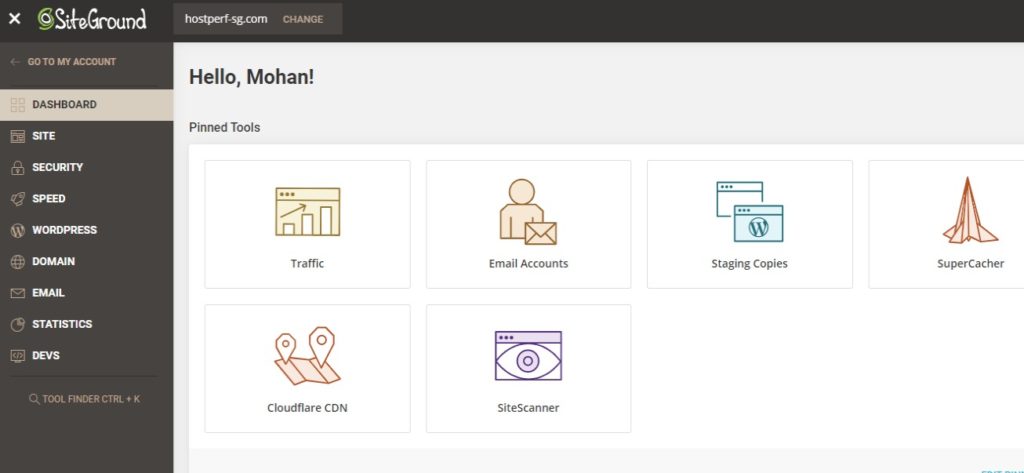
3. CDN
CDNs are extensively used these days and can drastically improve content delivery speed. Rocket provides customers with Enterprise Cloudflare CDN for free on all plans. With that, sites benefit from a blazing-fast speed backed by advanced features such as Brotli file compression, Image Optimization, Tiered Caching, Agro Smart Routing, and the closest server.
SiteGround started offering its own CDN solution and ditched its decade-long partnership with Cloudflare. Since their CDN pricing is higher ($14.99/month/site), I haven’t tested the performance. You can get more details about their CDN here.

4. Backups
Rocket has an automated daily backup feature, wherein backup sites are taken every night and saved on the Rocket server. This is done as part of disaster recovery. However, users can also restore a backup as per their requirements. The company offers a 14-day backup retention on its plans, although one can take on-demand backups anytime.

Another cool thing about Rocket’s backup system is that the host allows on-demand backup on all plans. SiteGround offers free automated daily backups on all plans, and the host saves 30 recent backups. Users can restore any of the 30 backups at any point without any hassle.

5. Staging
Rocket offers Staging free on all plans, and creating a staging site is a pretty simple process. After you finish experimenting with the changes, you can quickly deploy the final changes to your live site.
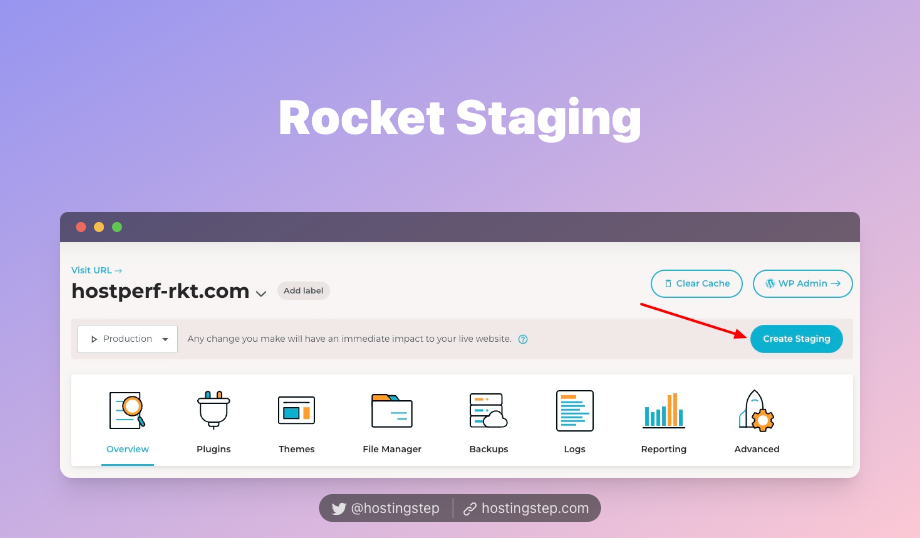
In SiteGound, the Staging feature is not free on the StartUp plan and is only available on the following higher plans. However, SiteGroud makes the process pretty convenient for users. The host also offers Git integration with staging.
6. Security
Rocket has excellent security features, including a WordPress Website Firewall, Hack and malware Removal, and Automated WP Core, Plugin, and Theme Updates.
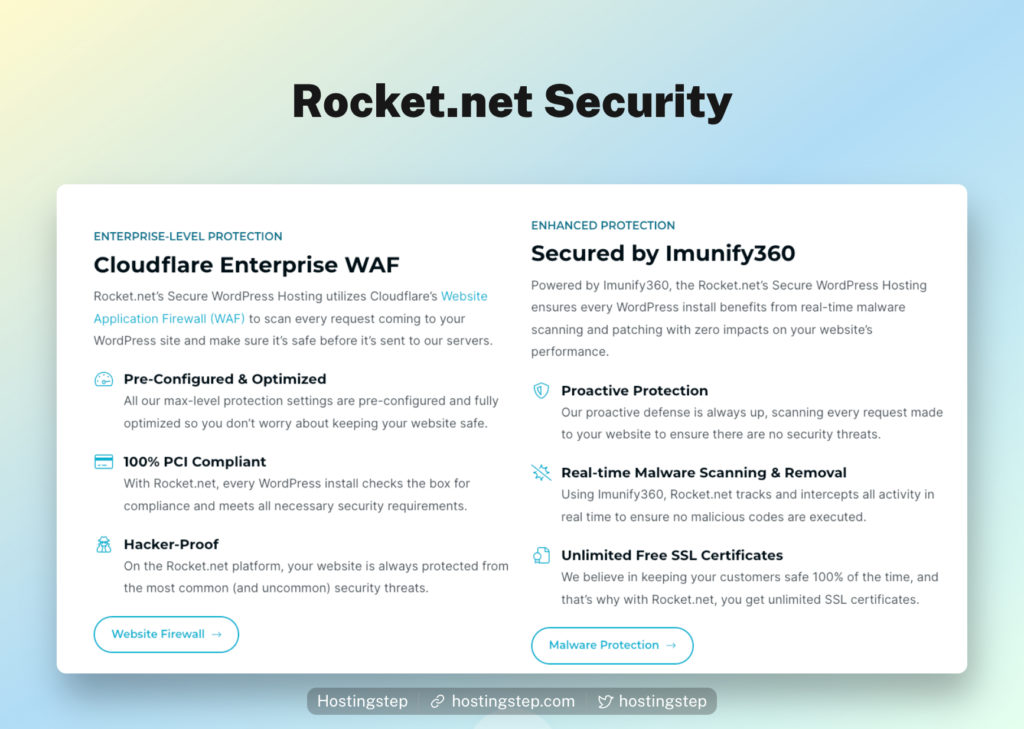
SiteGround security system is characterized by a custom web application firewall, AI Anti-Bot System, Let’s Encrypt SSL Certificate, and Linux containers.
Hence, it wouldn’t be wrong to say that Rocket and SiteGround have highly reliable security systems.
7. Support
Rocket has a decent support team of highly proficient WordPress experts from the USA. The support team remarkably assists the customers through 24×7 live chat, phone, and email.
SiteGround is used to offer great support, but it has made it difficult to contact customer support. Sounds crazy, right? Yes, reducing the chat & ticket volumes made it difficult for users to chat with a customer support agent. Finding the chat support button will take a minimum of 6 clicks. Many users are complaining, but the company hasn’t made any changes to the portal yet.
Pricing
Rocket.net plans start at $30/month. Rocket offers all its free features on all its plans, including Cloudflare Enterprise CDN.
SiteGround does deep discounting on your first invoice. However, their renewal charges are among the highest in the industry. You’ll be surprised to see their startup plan costs $3.99/mo. But it renews at $14.99/mo. Likewise, all the plans have high renewal charges.
Unlike Rocket, SiteGround limits its features based on the plan. You need to choose their $10.69/mo. The GoGeek plan (renews at $39.90/mo.) uses all of its features. You need to pay $14.99/month/site for CDN. Overall, I’m not happy with SiteGround’s pricing model.
Conclusion
I am sure you have thoroughly enjoyed reading this post, and I have put my best efforts into presenting you with the most transparent picture of the two services. Now, you should have no difficulty understanding how the two services work. As per my testing and review, Rocket has a leading edge over SiteGround in many places.
However, SiteGround is also a reliable hosting service and has largely proved it over the years.
